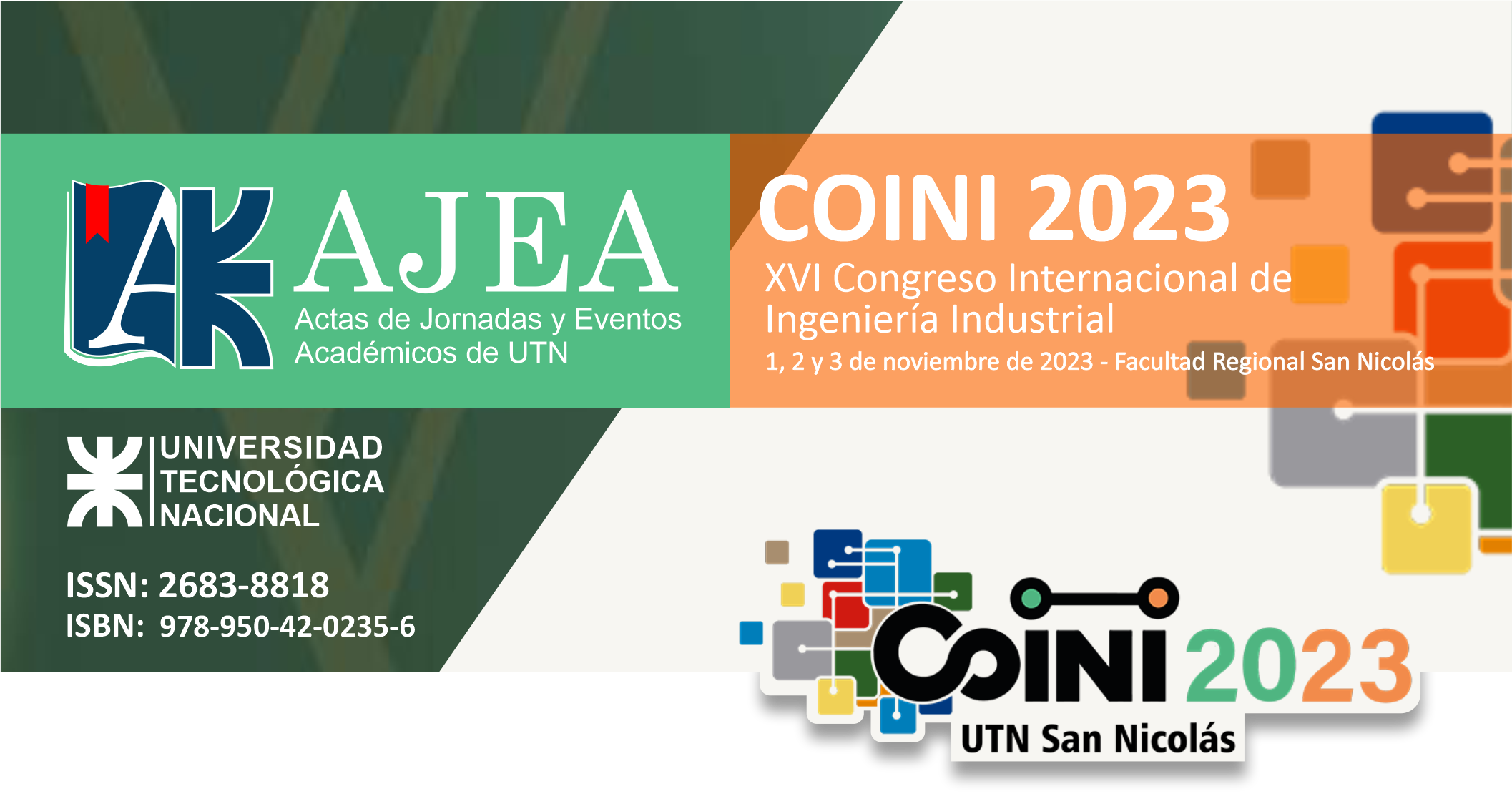ENERGY OPTIMIZATION IN THE INDUSTRY: GENERATION OF LINKAGE STRATEGIES APPLYING THE SABATO TRIANGLE MODEL. THE CASE OF THE FACULTY OF ENGINEERING OF THE NATIONAL UNIVERSITY OF LOMAS DE ZAMORA
Keywords:
Sabato Triangle, Training, Energy ManagementAbstract
This article summarizes the main contributions of the project "Link between the industrial pole and the university: strategy to implement energy efficiency tools and industries 4.0". The objective of this project is to address the energy problem in the regional industry through training in applied engineering. It focuses on generating training modules to determine and improve the organizational energy index of companies.
First, the project development process is proposed, which is based on identifying the needs and challenges of the industry in terms of energy management. Based on this understanding, the training modules were designed, covering aspects related to energy efficiency, sustainable technologies and process optimization. The proposed training focuses on providing participants with the necessary tools and knowledge to implement concrete solutions in their organizations. It is verified by applying Sabato's triangle theory, which establishes that linking the science, technology and knowledge sector with the state and companies can generate positive results. Through access to sources of financing for the project, recognizing the importance of having sufficient resources to carry out the learning activities and ensuring long-term sustainability. The article highlights the importance of specific education to determine and/or improve the energy index of companies. By providing participants with the necessary tools, it seeks to encourage the adoption of more efficient and sustainable practices that generate economic and environmental benefits.
Downloads
Metrics
Downloads
Published
How to Cite
Conference Proceedings Volume
Section
License
Copyright (c) 2024 Jonathan Morris, Nahuel Horomanski, Mara Carrizo, Cristina Lafflitto, Analía Figueira

This work is licensed under a Creative Commons Attribution-NonCommercial 4.0 International License.










